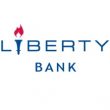The Future Looks Bright for Blockchain and B2B Payments
![]() Tapping into two expanding markets, BNP Paribas said Dec. 21 it had completed its first cross-border B2B payments between corporate clients using blockchain, the technology that underlies bitcoin transactions. The move comes as other major financial institutions seek to invest in blockchain and there’s a rush of providers trying to displace checks in the corporate payments space, particularly for cross-border payments.
Tapping into two expanding markets, BNP Paribas said Dec. 21 it had completed its first cross-border B2B payments between corporate clients using blockchain, the technology that underlies bitcoin transactions. The move comes as other major financial institutions seek to invest in blockchain and there’s a rush of providers trying to displace checks in the corporate payments space, particularly for cross-border payments.
The BNP transaction involved European firms Amcor, which sells packaging, and Panini, which sells trading cards. “The transactions cleared in various currencies between BNP Paribas bank accounts located in Germany, the Netherlands and the United Kingdom,” the France-based financial institution said.
In September, BNP said it would assume a “co-development mode” with clients to test such blockchain applications. This particular payment was processed and cleared in minutes, and without any processing errors or other mistakes that can plague cross-border transactions, the bank said.
Sixty percent of B2B payments still take place via check, according to Q Insights, with cards accounting for only 3 percent of those transactions. That presents significant expense, as the average cost to process a check is $6, and can run as high as $25, according to AFP Payments Cost Benchmarking Survey. That’s why such financial institutions such as Bank of America Merrill Lynch and U.S. Bank have launched digital corporate payment products.
That’s not all: According to consulting firm Capgemini, corporate transactions fueling cross-border commerce stands as one of the main trends in payments. “Cross-border payments represent a significant payments market, and banks and non-banks are increasingly competing to gain market share,” Capgemini said. Globally, spending by businesses and governments tops $110 trillion, according to Visa.
As for blockchain, the global market for that technology will hit $400 million in 2019, according to Capgemini. Grabbing a larger share of that pie is why Goldman Sachs and JP Morgan Chase want to invest up to $20 million in blockchain startup Axoni, according to a Reuters report this week. Based in New York, Axoni “helps banks and other institutions develop blockchain software to run capital markets processes.” The company has supported transactions involving credit default swaps and foreign exchange.
Goldman Sachs had previously departed the rival R3 blockchain consortium, according to CoinDesk, with Spain-based Banco Santander soon following. Earlier this year, Microsoft and Bank of America said they will team up to further develop blockchain technology.
Related stories:











































